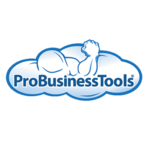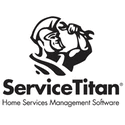Yes, most modern HVAC software is designed to be accessible from a variety of devices and platforms. This implies that you can run the software on your computer, tablet, or smartphone. Furthermore, the software is compatible with both the Mac and PC operating systems. This versatility enables HVAC professionals to easily access and use their preferred devices or operating systems.
List of 20 Best HVAC Software
Fleet Complete, a fleet management software that transforms operations, enhances safety, and ensures regulatory compliance for businesses across various industries. Powered by AI technology, real-time data, and customizable features, this solution en...Read More Fleet Complete
MobiWork is a software solution for businesses looking to streamline their field service management processes. Their comprehensive range of services caters to various industries, offering tools that enhance productivity and simplify operations for mo...Read More MobiWork
Fieldmagic is a field service and asset management software designed to optimize business operations and customer satisfaction. With features such as streamlined job execution, maintenance management and data consolidation, Fieldmagic empowers busine...Read More Fieldmagic
Transform your invoicing process with Inv24. This user-friendly software allows you to create professional invoices in just seconds. Whether you run a small business or a large company, Inv24 has you covered with its free version and simple interface...Read More Inv24
Breezeworks is team and appointment management software that simplifies your workflow. Its real-time updates, streamlined invoicing and automatic notifications keep you organized and productive. Try it out with a free 14-day trial and experience the...Read More Breezeworks
BigChange is an innovative software platform that transforms job management. With cutting-edge capabilities, such as live tracking, optimized planning, and in-depth analysis, it empowers companies to boost efficiency and simplify processes. Its smoot...Read More BigChange
Wingmate is a CRM and pipeline management tool designed for service-based businesses. With a focus on promoting effective team collaboration, it streamlines sales and service processes, leading to increased revenue generation. Its advanced features e...Read More Wingmate
ToolTime is a job management software and app built for tradespeople. Simplify your paperwork and streamline your daily tasks with our user-friendly interface. Perfect for sole traders and small businesses in industries like plumbing, electrical work...Read More ToolTime
Trakref is a refrigerant management solution designed to help you maintain compliance and sustainability. Our advanced platform offers real-time data, customizable reports, and automatic regulatory updates, streamlining HVAC/R operations and giving y...Read More Trakref
ProBusinessTools is web-based software specifically created to enhance operations and boost productivity for service-based enterprises. Its advanced capabilities include dynamic inventory management, automated payroll, and exceptional customer suppor...Read More ProBusinessTools
Pointman - business management software designed to streamline operations. With its advanced features including job tracking, CRM, and live analytics, Pointman enables businesses to boost productivity, improve customer satisfaction, and make strategi...Read More Pointman
Eresources scheduling interface is designed after MS Project, offering a user-friendly and detailed Grant Chart View. The view showcases both estimated and actual activity for all tasks in one convenient screen. Resource Management allows users to ef...Read More eresource
QuikAllot is a field service management software that enables efficient monitoring and oversight of your field service operations. By seamlessly connecting your field team and office, it offers real-time updates and streamlined communication. With Qu...Read More QuikAllot
ArcSite is a mobile CAD application for all your project needs. This powerful app offers a seamless combination of data, tools, and team collaboration to enhance productivity. With its focus on precision and user-friendliness, ArcSite streamlines pro...Read More ArcSite
Quadra is a electrical estimating software customized for HVAC, Mechanical, Plumbing, and Electrical contractors. This cutting-edge software minimizes errors and automates tasks to save time and increase accuracy. With integrated project management,...Read More Quadra
Powered Now is a and efficient field service management software specifically designed for small businesses. Its advanced features, including scheduling management, customizable invoices, and accurate estimates, make it easy to streamline team operat...Read More Powered Now
ThermoGRID solution for optimizing field service operations. This comprehensive software offers advanced capabilities for scheduling, dispatching, and customer communication, enabling seamless connectivity and optimal efficiency for your team. With T...Read More ThermoGRID
Acowin is a software tailored for service and project management companies. Its integration with QuickBooks® and other accounting systems simplifies tasks such as scheduling, dispatching, equipment tracking, and inventory managemen...Read More Acowin
Explorer Shafers solution for effortless business management. From dispatching and purchasing to payroll and accounting, it simplifies your entire process. Say goodbye to tedious tasks and hello to increased efficiency with all your important data ho...Read More Explorer Shafers
ServiceTitan is a highly regarded software platform that is widely adopted by leading home service companies. It offers an efficient solution for managing business processes, increasing sales, and enhancing the overall customer experience. Backed by...Read More ServiceTitan
Learn More About HVAC Software
- What Is HVAC Software?
- What Are The Recent Trends In HVAC Software?
- Benefits Of Using HVAC Software
- Important Factors To Consider While Purchasing HVAC Software?
- What Are The Key Features To Look For In HVAC Software?
- Why Do Businesses Need HVAC Software?
- How Much Time Is Required To Implement HVAC Software?
- What Is The Level Of Customization Available In HVAC Software?
- Which Industries Can Benefit The Most From HVAC Software?
- Conclusion
What Is HVAC Software?
HVAC software is a digital tool created specifically for heating, ventilation, and air conditioning systems. HVAC experts utilize it to streamline their daily operations, increasing overall efficiency and production. The software has a variety of tools and functionalities to assist with duties such as scheduling, dispatching, inventory management, customer management, invoicing, and more.
One of the primary advantages of adopting HVAC software is the improved organization and management of data. With all information maintained in a single area, technicians may easily access and change customer information, equipment data, service history, and other data. This not only saves time and eliminates misunderstanding, but it also enhances the whole client experience. Another key feature of HVAC software is the capacity to track and manage inventory.
The software can monitor stock levels, reorder points, and produce purchase orders, avoiding unnecessary delays or shortages. This functionality can considerably lower expenses and enhance supply chain management. HVAC software also includes scheduling and dispatching features, which can help increase field service efficiency. The software allows technicians to access and manage their schedules, monitor project progress, and optimize their travel routes. This leads to higher productivity and simpler processes.
In addition to these key functions, many HVAC software solutions provide customer relationship management, marketing tools, and reporting and analytics. These technologies can help firms understand their clients, track their marketing efforts, and make more educated business decisions. When considering acquiring HVAC software, it is critical to assess your company's specific requirements and select software that provides the necessary functionality and integrations. Businesses may use the correct HVAC software to improve their operations, increase customer satisfaction, and boost their bottom line.
What Are The Recent Trends In HVAC Software?
In recent years, the HVAC sector has increased its use of technology to improve efficiency, streamline procedures, and ultimately save time and money. This has resulted in the creation of HVAC software, which provides numerous features and benefits to organizations of all sizes. As you look for the ideal HVAC software for your organization, it's critical to stay up to date on the latest trends in this ever-changing sector.
One of the most noticeable changes in HVAC software is the shift to cloud-based solutions. These solutions provide remote access and improved team communication, making it easier to manage projects and share information in real time. Furthermore, cloud-based software eliminates the need for expensive hardware and enables for automatic updates, which reduces the workload on IT teams.
Another trend is to incorporate IoT (Internet of Things) technology into HVAC software. This enables the monitoring and control of smart devices such as thermostats and sensors from a single platform. HVAC software can optimise energy consumption, identify potential problems, and even predict maintenance needs by collecting and analysing data from these systems. There is also a rising emphasis on smartphone compatibility in HVAC software.
With more professionals and contractors operating in the field, having access to software on mobile devices is essential. This enables on-site data gathering, remote access to project information, and real-time communication among team members and clients. Artificial intelligence and machine learning are also being used in HVAC software. These systems can detect patterns and trends in data, enabling predictive maintenance and more efficient energy management.
As AI advances, we should expect increasingly advanced capabilities in HVAC software. Finally, there is an increasing emphasis on customer relationship management (CRM) in HVAC software. This enables organizations to better manage client contacts, track prospects, and provide superior customer service. By optimizing these processes, HVAC companies may give their customers with a more personalized and efficient experience.
Benefits Of Using HVAC Software
HVAC software refers to computer programs or applications that are specifically developed to simplify and improve the management of HVAC (Heating, Ventilation, and Air Conditioning) systems. As the demand for efficient and cost-effective temperature control grows, HVAC software has become an indispensable tool for building owners, facilities managers, and HVAC contractors.
Explore the advantages of adopting HVAC software and how it may help improve the performance of your HVAC system and overall business processes.
1. Efficient System Administration: One of the key advantages of HVAC software is its ability to simplify and automate system administration activities. HVAC software, with capabilities like remote monitoring and scheduling, enables you to monitor and control the functioning of your HVAC system from anywhere and at any time. This not only saves time and effort, but it also assures that maintenance is done on time and that systems do not fail.
2. Cost Savings: HVAC software can significantly reduce your energy and maintenance expenditures. By delivering real-time data on energy usage and system performance, it enables you to discover inefficiencies and make required adjustments, resulting in lower energy consumption and utility bills. Furthermore, regular maintenance scheduling can help prevent costly breakdowns and extend the life of your HVAC system.
3. Increased Accuracy: Manual data input and record-keeping are susceptible to human error, which can have serious effects in the HVAC business. HVAC software mitigates this risk by automating data collecting and management operations, resulting in accurate and up-to-date information. This allows for more informed decisions and avoids costly mistakes.
4. Increased Customer Satisfaction: With HVAC software, you can give your consumers a better service experience. Customer portals and automatic notifications keep consumers informed about maintenance schedules and service requests, which improves communication and transparency. This can result in improved customer connections and higher satisfaction.
5. Customization And Connection: HVAC software can be customized to meet your individual business requirements, allowing for seamless connection with other tools and systems. This not only assures a smooth workflow, but also provides a comprehensive perspective of your company's operations. You may create personalized reports, evaluate data, and make data-driven decisions to boost overall efficiency and productivity.
Important Factors To Consider While Purchasing HVAC Software?
When it comes to acquiring HVAC software, buyers must consider numerous criteria in order to make the best option for their company. These essential aspects, which range from functionality and compatibility to cost and customer service, can have an impact on the software's overall efficacy and efficiency.
Below are some crucial considerations to consider while selecting HVAC software:
1. Features And Functionality: One of the most significant considerations when selecting HVAC software is the features and functionality it provides. The software should provide all of the tools and features required to fulfill the specific needs of your organization. This may contain services like scheduling, dispatching, inventory management, and reporting. It is also critical that the software be user-friendly and intuitive, making it simple for your team to use and navigate.
2. Compatibility: Make sure that the HVAC software you choose is compatible with your company's existing systems and devices. This includes compatibility with your hardware, operating system, and any software packages that you use. Cloud-based software is preferred since it can be used from any device with an internet connection, allowing for greater flexibility and convenience.
3. Scalability: As your firm expands, your software requirements may alter. As a result, it is critical to assess the scalability of the HVAC software you plan to acquire. Choose software that can support your future business growth and readily adjust to your changing requirements. This will save you the time and money of upgrading to new software in the future.
4. Cost: Another crucial consideration is the cost of HVAC software. It is critical to calculate the overall cost of ownership, including the initial purchase price, training, maintenance, and any other expenses. Evaluate your budget and select the software that provides the best value for money.
5. Customer Service: Having a dependable customer service team is essential for any program, especially one that is key to the success of your company. Look for HVAC software vendors that give 24-hour technical support, training materials, and regular updates. This ensures that you have the essential support and help in the event of any problems or concerns.
What Are The Key Features To Look For In HVAC Software?
When selecting HVAC software, customers should check for a few important aspects to guarantee they are getting the finest product for their business needs. These features not only raise the software's efficiency and effectiveness, but they also result in improved client happiness and profitability.
Here are the main characteristics to consider while purchasing HVAC software:
1. Remote Monitoring And Management: The ability to remotely monitor and operate HVAC systems is essential for any business. Look for software that enables real-time monitoring of equipment, temperature settings, and energy use, as well as the ability to make changes and resolve problems remotely.
2. Scheduling And Dispatching: Proper scheduling and dispatching can make or destroy an HVAC company. Look for software that allows you to easily schedule service calls, receive reminders for impending appointments, and delegate work to field technicians. Some apps even include GPS monitoring to help optimize routes and reduce travel time.
3. Customer Database And Communication: A thorough customer database is critical for any successful HVAC company. Look for software that helps you to easily organize customer information, service history, and invoicing. It should also include communication tools like automated appointment reminders, customer feedback surveys, and real-time notifications.
4. Inventory Management: Proper inventory management is essential for keeping track of parts and supplies for service visits. Look for software that provides for simple inventory management and reordering, as well as integration with your supplier's systems to ensure seamless ordering and replenishing.
5. Mobile Accessibility: In today's fast-paced environment, having access to software on the go is critical. Look for HVAC software that has a mobile app or is web-based, so you can access critical information and do chores from any device with an internet connection.
6. Integration With Accounting Software: To improve your business operations, you must have HVAC software that integrates with your accounting software. This function eliminates the need to enter data into two distinct systems, allowing for more accurate and efficient financial reporting.
7. Customization And Scalability: Each HVAC business is unique, and your software should be able to meet your individual requirements. Look for software that allows for customization and scaling as your organization expands, without sacrificing performance.
Why Do Businesses Need HVAC Software?
HVAC (Heating, Ventilation, and Air Conditioning) software is a crucial tool for companies in the heating and cooling industry. It provides a wide range of features and functionalities that help to streamline many parts of HVAC operations, including as scheduling and dispatching, invoicing, and inventory management. One of the primary reasons businesses want HVAC software is to increase efficiency and productivity.
HVAC companies that use manual processes and paper-based systems may spend a large amount of time and effort on administrative activities. However, with the appropriate software in place, these operations may be automated, allowing workers to focus on more important activities such as servicing and installation. Another important feature of HVAC software is its capacity to increase client happiness.
Businesses that automate scheduling and dispatching can ensure that their personnel arrive on time, lowering customer wait times and enhancing service delivery. Furthermore, with capabilities such as customer and equipment tracking, organizations can keep track of service history and make targeted maintenance suggestions, improving the customer experience and fostering long-term partnerships.
Furthermore, HVAC software can help organizations manage their inventories more effectively. Businesses that track equipment and components usage can minimize overstocking and understocking, ensuring they have enough supplies to complete jobs on schedule. This not only saves time and money, but it also contributes to client satisfaction by avoiding service delays caused by a shortage of resources.
In addition to these advantages, HVAC software provides extensive reporting and analytics features. Businesses can obtain useful insights into their operations, discover areas for development, and make data-driven decisions. This can help organizations streamline their processes, cut expenses, and increase profits in the long run. Furthermore, with the rise of remote work and the demand for contactless solutions, HVAC software is becoming increasingly important.
It enables organizations to access and control their operations from anywhere, at any time, while maintaining social distancing during service calls. Overall, investing in HVAC software is critical for firms seeking to streamline operations, increase customer happiness, and remain competitive in the ever-changing heating and cooling market. HVAC software can aid in business growth and success by automating procedures, managing inventory, and offering vital data.
How Much Time Is Required To Implement HVAC Software?
The time required to implement HVAC software varies based on several factors, including the size of your organization, the complexity of your HVAC system, and the features and functionalities of the software you select. On average, it can take between a few weeks and many months to properly integrate HVAC software into your business operations. Before deploying any software, you must first get a comprehensive understanding of your company's objectives and goals.
This will assist you in selecting the appropriate software that meets your business requirements while also saving you time throughout the implementation process. The first stage in deploying HVAC software is to set up the system and enter your company's data, such as client information, work orders, and prices. This procedure can take many days or weeks, depending on the volume of data and your team's expertise with the software.
Once the system is in place, training is an important part of the implementation process. Your team should be instructed on how to use the program properly and efficiently. This can take a few days or even weeks, depending on the software's complexity and the training approach used. Another factor to consider is the compatibility of the HVAC software with your existing systems.
If you use other software or solutions for your business, it may take some time to combine them with HVAC software. This process can take anything from a few days to several weeks, depending on software compatibility and integration complexity. In addition to these considerations, the overall complexity of your HVAC system can influence the implementation time.
If you have a large and complex system, it may take longer to configure the software and teach your team to utilize it efficiently. It is important to remember that the implementation time will vary depending on your level of commitment and dedication. If you set aside enough time and resources, the procedure can be accomplished more rapidly. On the other side, if your staff is preoccupied with other responsibilities and unable to devote fully to the implementation process, it may take longer.
What Is The Level Of Customization Available In HVAC Software?
When choosing HVAC software, customization is an important element to consider. HVAC software customization options can differ greatly between providers. Before making a purchase, purchasers must first determine the level of customization required for their specific business demands. Customization options in HVAC software may include the ability to add or remove capabilities, modify existing functions, and fit the program to specific business operations.
This kind of flexibility can have a substantial impact on the user experience and, ultimately, the success of software installation. Some HVAC software companies provide fully configurable solutions, allowing users to adjust features based on their individual needs. This level of flexibility is especially useful for firms with unique processes or those seeking to streamline and automate specific procedures.
Other providers may offer a more basic level of customisation, with fewer possibilities for changing features or processes. While this may be appropriate for some organizations, it may not give the required level of flexibility for others. Furthermore, some HVAC software companies provide for additional customisation through connections with other software systems. This can be very important for ensuring a smooth workflow between numerous business tools and increasing efficiency.
Before making a purchasing choice, purchasers must assess their business objectives and identify the level of customization required in HVAC software. Consider the scale of the firm, the complexity of procedures, and future expansion plans. This will assist in selecting a software solution that can be customized to match unique business requirements and deliver a more personalized user experience.
Which Industries Can Benefit The Most From HVAC Software?
HVAC software, often known as heating, ventilation, and air conditioning software, is specifically intended to help HVAC companies manage and streamline their operations.
While the benefits of this software may differ by firm, there are some industries that can greatly benefit from installing HVAC software.
1. Construction Industry: HVAC systems play an important role in providing comfort and maintaining building temperature. HVAC software enables construction organizations to conveniently manage and track their HVAC projects, such as equipment and material tracking, project scheduling, and budget management. This software also provides precise HVAC load calculations, which aids in the design of efficient and cost-effective systems.
2. Building Maintenance: Buildings, both commercial and residential, require annual HVAC maintenance to guarantee optimal operation and energy efficiency. HVAC software can help building maintenance firms plan preventative maintenance, track equipment warranties, and manage service orders. This reduces the danger of unexpected malfunctions and extends the life of HVAC systems.
3. Energy And Facilities Management: HVAC software can be extremely beneficial to energy and facilities management organizations. This software gives real-time information about energy usage, equipment performance, and overall HVAC efficiency. With this information, businesses may find areas for energy savings and make data-driven decisions to optimize their operations.
4. Property Management: HVAC software has the potential to transform property management organizations by streamlining their HVAC operations. Property managers may guarantee that HVAC systems in their buildings operate at peak efficiency by tracking equipment, scheduling maintenance, and analyzing energy consumption. This not only saves time and money, but also makes tenants happier.
5. Manufacturing Industry: HVAC systems play an important function in managing the temperature and air quality of manufacturing facilities. HVAC software can assist manufacturers in monitoring and controlling their HVAC systems, ensuring that they operate efficiently and satisfy industry standards. This leads to increased productivity, lower energy costs, and a safer workplace for employees.
Conclusion
In conclusion, selecting the best HVAC software for your company is a critical decision that must be carefully considered. Understanding your individual objectives and goals, comparing the features and capabilities of various software solutions, and taking advantage of free trials and demonstrations will help you make an informed decision that will benefit your organization in the long run.
When assessing HVAC software solutions, keep in mind that ease of use, interoperability with existing systems, and customer support come first. Look for features like automatic scheduling, real-time monitoring, and reporting tools to help you streamline your operations and boost productivity. When picking a software solution, remember to consider scalability and future expansion.
Investing in the correct HVAC software can significantly benefit your business, saving you time and money while enhancing overall efficiency. Take the time to properly explore and evaluate many ideas before making a decision. With these suggestions in mind, you can confidently select software that suits your specific requirements and helps you take your HVAC business to the next level.
HVAC Software FAQ's
Can HVAC Software Be Accessed Across Multiple Devices And Platforms?
Is HVAC Software Future-Proof And Adaptable To Emerging Technologies Like AI, Blockchain Or IoT?
HVAC software is continually improving to meet the industry's changing expectations, making it future-proof and adaptable to new technologies such as AI, blockchain, and IoT. HVAC software improves operations and efficiency by including advanced features like predictive maintenance and remote monitoring.
It also supports smart home systems, ensuring compatibility with cutting-edge technologies. This ensures that your HVAC system is always up to date and can readily accommodate future developments.
Is There A Free Trial Offered To Assess HVAC Software Before Committing?
Yes, many companies that provide HVAC software offer free trial periods for potential clients to evaluate the program before committing to a purchase. This allows customers to test out the software's features and functionalities to see if it suits their specific requirements. It is recommended that you take advantage of the free trial to confirm compatibility and usability before making a cash investment.
Does HVAC Software Offer Data Security Features And Meet Regulatory Compliance Standards?
Yes, most HVAC software includes data security safeguards and adheres to regulatory compliance norms. These features include data encryption, scheduled backups, and permission-based access to sensitive information. HVAC software also assures adherence to industry requirements like as HIPAA, ADA, and GDPR. This not only protects your company from data breaches, but also guarantees that your operations are compliant with regulatory obligations.
Can HVAC Software Integrate Seamlessly With Existing Tools And Platforms?
Yes, many HVAC software companies integrate seamlessly with existing tools and platforms. Users can effortlessly move data and information across software programs without losing anything or having to manually enter it.
Integration with accounting software, scheduling applications, and inventory management systems can help to streamline HVAC operations and increase efficiency. To properly exploit its capabilities and benefits, HVAC software should include compatible integration choices.






















